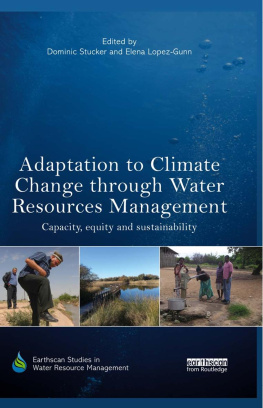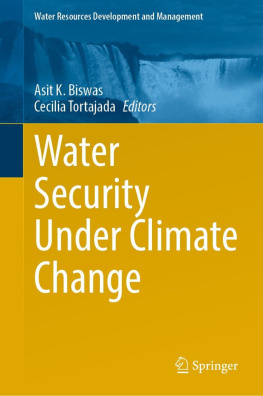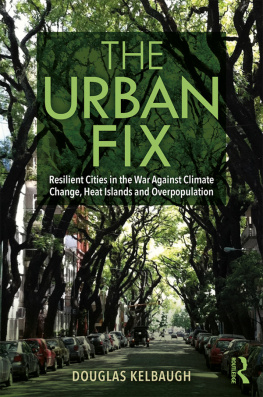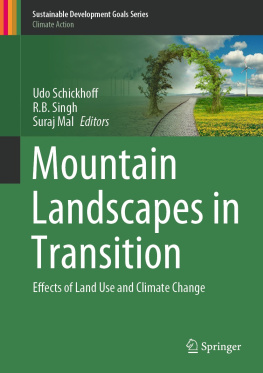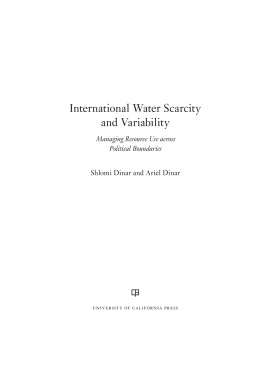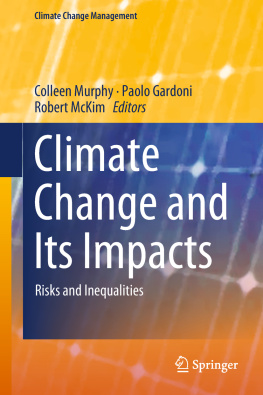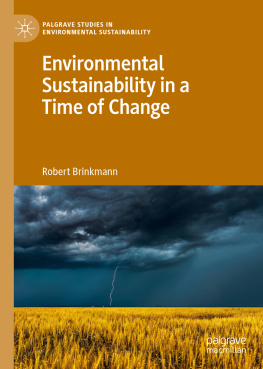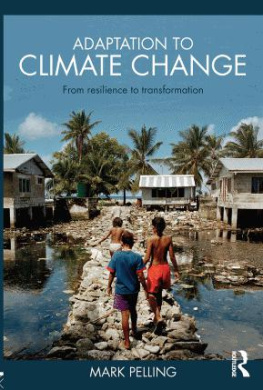Adaptation to Climate Change through Water Resources Management
The impacts of human-induced climate change are largely mediated by water, such as alterations in precipitation and glacial melt patterns, variations in river flow, increased occurrence of droughts and floods, and sea level rise in densely populated coastal areas. Such phenomena impact both urban and rural communities in developed, emerging and developing countries.
Taking a systems approach, this book analyses evidence from 26 countries and identifies common barriers and bridges for local adaptation to climate change through water resources management. It includes a global set of case studies from places experiencing increased environmental and social pressure due to population growth, development and migration, including in Africa, Asia, Europe, North and South America and Oceania.
All chapters consider the crosscutting themes of adaptive capacity, equity and sustainability. These point to resilient water allocation policies and practices that are capable of protecting social and environmental interests, whilst ensuring the efficient use of an often scarce and variable resource.
Dominic Stucker is Senior Project Manager at the Collective Leadership Institute in Germany. He is an action-oriented collaborator who convenes diverse teams to address complex sustainability challenges. Dominic specializes in water, climate change, livelihoods and Central Asia, having published with Earthscan/Routledge, MIT Press and academic journals.
Elena Lopez-Gunn is currently leading a small consultancy, ICATALIST, specializing in knowledge brokerage and management. She is also an Associate Professor at IE Business School, Spain, and is working on projects for FAO and for a Spanish energy company. Previously, Elena was a Senior Research Fellow at the Water Observatory at the Botin Foundation, Universidad Complutense de Madrid and a Fellow at the London School of Economics.
Earthscan Studies in Water Resource Management
Water Management, Food Security and Sustainable Agriculture in Developing Economies
Edited by M. Dinesh Kumar, M.V.K. Sivamohan and Nitin Bassi
Governing International Watercourses
River basin organizations and the sustainable governance of internationally shared rivers and lakes
Susanne Schmeier
Transferable Groundwater Rights
Integrating hydrogeology, law and economics
Andreas N. Charalambous
Contemporary Water Governance in the Global South
Scarcity, marketization and participation
Edited by Leila Harris, Jacqueline Goldin and Christopher Sneddon
Water Governance, Policy and Knowledge Transfer
International studies on contextual water management
Edited by Cheryl de Boer, Joanne Vinke-de Kruijf, Gl zerol and Hans Th. A. Bressers
Water as a Catalyst for Peace
Transboundary water management and conflict resolution
By Ahmed Abukhater
Sustainable Water and Sanitation Services
The life-cycle approach to planning and management
Livelihoods & Natural Resource Management Institute, International Water & Sanitation Centre, Centre for Economic and Social Studies, Watershed Support Services & Activities Network
Water for Food Security and Well-being in Latin America and the Caribbean
Social and environmental implications for a globalized economy
Edited by Brbara A. Willaarts, Alberto Garrido and M. Ramn Llamas
Water Scarcity, Livelihoods and Food Security
Research and innovation for development
Edited by Larry W. Harrington, Myles J. Fisher
Adaptation to Climate Change through Water Resources Management
Capacity, equity and sustainability
Edited by Dominic Stucker and Elena Lopez-Gunn
For more information and to view forthcoming titles in this series, please visit the Routledge website: www.routledge.com/books/series/ECWRM/
Climate change will further exacerbate the already significant stress on water resources globally. This book brings together a range of interesting case studies from the developed and developing world, showcasing adaptation strategies. They should provide useful lessons to others trying to find adaptive solutions to climate change impacts.
Ute Collier, Climate Change Expert, UK
Stucker and Lopez-Gunn have assembled an outstanding volume illustrating how effective water management is already helping to adapt to climate change. Conceptually rigorous, multi-scale in focus and empirically rich, this book distils important lessons for key stakeholders to implement the next generation of water sector adaptation policies.
Tom Deligiannis, University of Western Ontario, Canada
Global warming and associated changes in rainfall, evaporation and water availability now appear to be inevitable. If adaptation to the changing conditions is to be successful, careful management conforming with local circumstances is required. These studies from a wide range of countries provide a perceptive introduction to an evolving subject of fundamental importance.
Dick Grove, Fellow, Downing College, University of Cambridge, UK
Few myths in climate change research have produced more errors than assuming that society cannot adapt. In the view of Stucker and Lopez-Gunn, the essential thing about society is not that it needs to adapt to climate change, but how it adapts. Their book appears at a critical point as we face a crisis over how water resources will meet the needs of a growing population and of essential ecosystems. Its most important message is that society must and will adapt to changes in water resources.
It is a rich book, full of data. It reflects on an essential theme: the idea of complexity. This idea is persuasive and at least a partial explanation of what adaptation is about. The book includes an interesting analysis of case studies from four continents, presenting different aspects of adaptation literature, the models used, and the understanding of agricultural systems in many parts of our planet. The contribution builds on the scholarly knowledge and clearly complements the recent IPCC (2014) report.
The adaptation issue is now adopting an increasingly dominant intellectual style and includes exceptional contributions from the social sciences. This book reflects on the difficulty of representing the relevant socio-hydrological system through a set of simplifications. 20 case studies analyze the ability of water resources to adapt to climate change. Throughout the chapters, the authors argue repeatedly that adaptation can be effective in response to the threats posed by climate change, capturing a full range of adaptation pathways. The case study lessons are particularly suited to inform policy and will remain important. The rich data highlights the diversity of challenges faced between locations and hydrological systems in developed and developing countries. This may serve to support analysis of the factors that have influenced or are likely to influence adaptation of water resources. Beyond this book, I personally feel Stucker and Lopez-Gunn are making great contributions to the analysis of climate change adaptation. Their work will remain influential by challenging more static views on society.
Ana Iglesias, Technical University of Madrid and IPCC Editor, Spain
This book is not only intended for academics but also for policy makers and practitioners at large, written in an easy language. It is a nice effort because it gives voice to young academics all over the world and how they see adaptation from the perspective of their own country and expertise. The issues addressed are pertinent for ensuring implementation of adaptation to climate change which is a weakness in many countries. I am sure the case studies provide necessary bench marks for many efforts of implementation.

